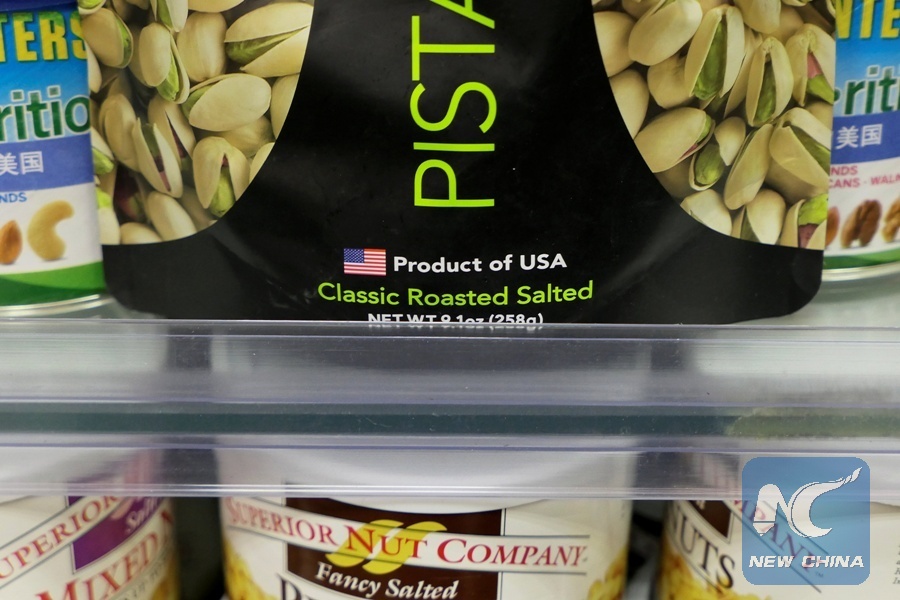
A bag of pistachios produced in the United States is placed among nuts and photographed in a shop in Beijing, China April 6, 2018. (Xinhua/REUTERS)
SAN FRANCISCO, May 14 (Xinhua) -- The diverse economy of Washington state on the U.S. west coast is deeply tethered to liberalized trade policy, which stands to raise its overall prosperity, an industry expert said Monday.
Edward Hamberger, president and CEO of the Association of American Railroads, said in a signed article to The Seattle Times that the Seattle region could lose about 16,000 jobs from a trade battle between the United States and China.
Hamberger quoted a recent study as saying that 40 percent of Washington state's total job market is tied to international trade, "a number that towers over almost every other state in the nation."
Exports alone have generated 138,271 direct jobs in greater Seattle, the largest city in the state, he said.
According to the Peterson Institute for International Economics, 41 million jobs in the United States, or more than 20 percent of all workers, depend on trade. In addition, U.S. incomes are nine percent higher today due to markets opened since World War II than they would have been if the country walled itself off from other nations, Hamberger said.
He also urged the Trump administration to finalize an updated trilateral pact between Canada, Mexico and the United States.
Trump has repeatedly threatened to tear up the 1994 North American Free Trade Agreement (NAFTA), and he has set June 1 as the deadline for a new agreement between the three countries.
Hamberger said NAFTA has boosted the U.S. economy by 127 billion U.S. dollars annually, which ultimately benefits the United States and its key sectors that guarantee the American way of life.
"No trade policy happens in a vacuum" in an integrated global market today, he said, hoping the U.S. government will have a vision for more open markets, as more than 40 percent of its traffic and a third of its labor force are attributed to trade.

